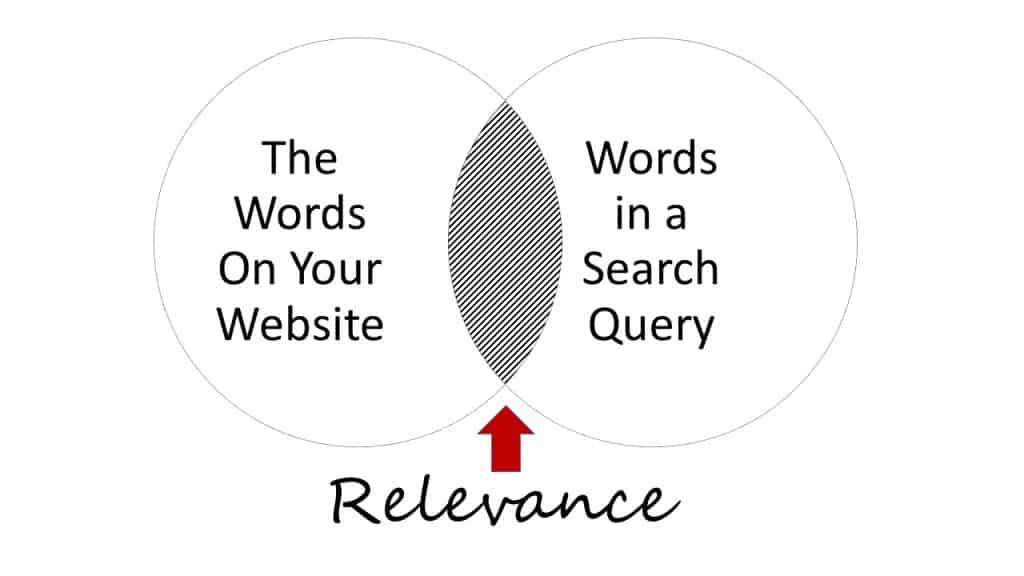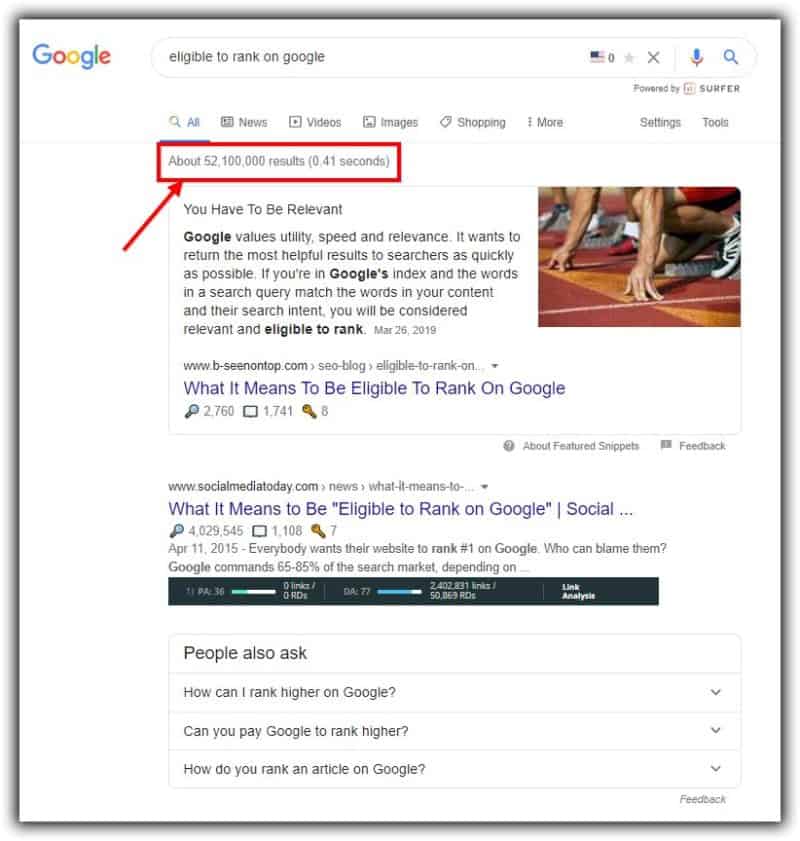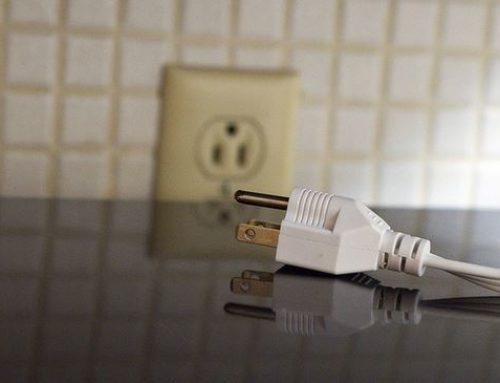Estimated Read Time: 6 Minutes
Everybody wants to rank #1 on Google and who can blame them? Google commands 65-85% of the search market, depending on who you ask and what they measure.
According to Moz, 71.33 of searches result in a page 1 organic click. The top 3 earn 55.13%.
If you want to rank well on Google, if you want to be “eligible to rank”. That means that before you can have the opportunity to even be considered for ranking, you have to first get found and indexed by Google, and then your content has to be relevant – it has to be able to satisfy the search query.
Found and Indexed
A bit of background is needed before you can begin to understand what is meant by getting found and indexed by Google.
Think of Google’s index as being very similar to the index you would find in any library. When you want to find a publication in the library, you don’t just start walking the aisles and scanning row after row of books. You instead go to the library’s index and search by author, name of the publication, subject matter or another relevant identifier. It’s far more efficient to find what you came looking for this way and you might find some other relevant options along the way.
Google’s index works much the same way. They too are trying to speed the recovery and presentation of options to searchers.
The 3-minute video below as produced by Google in 2010. While dated, it is still true and accurate in its explanation of how search works. Along the way, you will learn how Google finds, inventories, and ranks content on the web.
The star of the video is Matt Cutts, the former head of the Google webspam team. Matt explains (in layman terms) how Google finds, inventories, and then ranks content on the Web. The thing I’m trying to highlight here is the fact that Google must first find and inventory your content before you’ll show up anywhere in search results. If Google doesn’t know about you; if it can’t find your website or navigate its content, you won’t reside in their index (or inventory of the web) and you won’t display in search results.
There are lots of reasons you might not be in Google’s index:
- Google might not have found you yet.
- Your website might be inaccessible or slow.
- Your content might be blocked from search engines (accidentally or on purpose).
- Google may not interpret your content the way you intended.
- Your website could be banned.
Google May Not Have Found You
If you have a brand new website or a website that no one has ever referenced or linked to before now, Google probably doesn’t know about it.
The quickest way to let Google know you have a website is to submit a sitemap. A sitemap is a simple list of your website content. Once you submit a sitemap to search engines, they’ll index your site and notify you of any problems.
Your Website Might Be Inaccessible or Slow
This is more common than you might think. Your website could be down when Google’s indexing programs come to visit. There might be a problem with the network or maintenance could be underway. If your website is inaccessible, Google won’t be able to index your site.
The same holds for true slow sites. Google is every bit as impatient as site visitors. If your site is taking too long to load, Google’s crawlers could abandon the effort and exit before indexing is complete. You may find your site is only partially indexed or infrequently updated in Google’s index.
Your Content Might Be Blocked From Search Engines
Google may have had no difficulty finding or accessing your website, but then been told to ignore it.
It is common for website developers and bloggers to tag an entire website or portions of its content with a noindex tag while it’s under development. A noindex tag tells Google you’re not ready to be found and would prefer to remain invisible. If you forget to remove the noindex tag, you won’t get indexed and you won’t show up in search results.
Google Doesn’t Interpret Your Content the Way You Intended
Not all websites are made the same. Some are easier to navigate and interpret than others. It depends on the site structure and the tools and techniques used to build the site. Some tools produce code that is easy for Google to understand. Some are more difficult or impossible.
If your site architecture doesn’t conform to Google’s guidelines and best practices, you might not get indexed. Alternatively, you could get indexed, but incorrectly.
Your Content Might Be Banned
Similar to the prior explanation, if you don’t conform to Google’s guidelines and best practices, you could suffer a penalty or be banned by Google. If your website is banned, you won’t get indexed and you won’t show up in search results.
You Have To Be Relevant
Assuming you satisfy all the criteria above, your website and its content will get indexed. The next hurdle you have to get over is you have to be relevant.

Google ranks relevant, authoritative (respected, useful, consistent high-quality) and trustworthy sites at the top of search results. It wants to return the most helpful results to searchers as quickly as possible. If you’re in Google’s index and content in your publication satisfies the need behind a search query (its search intent), you will be considered relevant and eligible to rank.
Words play a big part, but not the only part, in that. If I’m searching for “eligible to rank on Google”, I hope search results include similar language but, more importantly, I hope they satisfy my need to understand what that means and what I need to do to ensure I have a better chance of ranking well on Google. In other words, I hope the results I see satisfy my search intent. It’s not just about matching words. It’s about satisfying my information needs.
This means you need to make an effort to try to understand the language people use when entering search queries and what it is they are trying to do with the information you provide. If you know the questions they have when they’re searching for your products and/or services, you can create content to help them.
A Quick Example
If I type “eligible to rank on Google” into Google’s search engine, here’s what I see displayed in search results.

It’s a bit hard to read, but Google is saying it found roughly 52 million pages in its index that it feels may be able to help the searcher do what he or she needs to do. Google feels those pages are relevant and has ordered them in descending order of their perceived authority and trustworthiness.
Remember
Being eligible to rank doesn’t mean you’ll rank highly. It just means you’ll be in the running. You still have to outrank other eligible pages which might be, in Google’s assessment, more authoritative or trustworthy.
Getting indexed and providing relevant and useful content on your website gets you to the starting gate. There is still a whole lot of work that needs to be done before you can actually earn your way to the top. Depending on your competitors, it can sometimes feel like an Olympic competition!
Does that make sense? If you have any thoughts or questions, please share them in the comments below.
IMAGE CREDIT: Featured image by tableatny (BXP135671) [CC BY 2.0] via Wikimedia Commons.





Leave A Comment